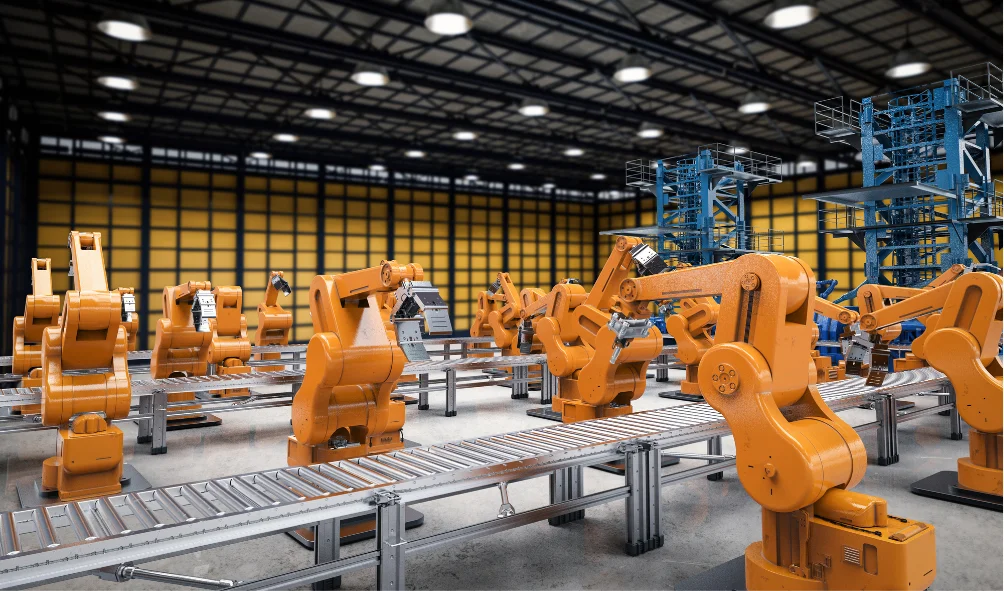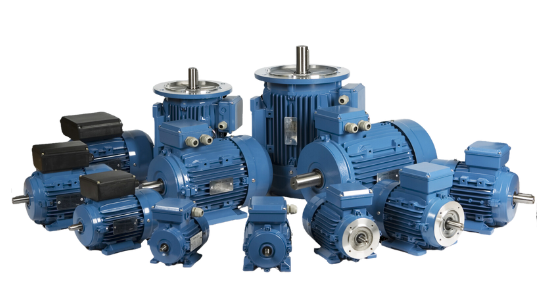The chemical industry is a critical component of global manufacturing, providing essential products and materials for agriculture, healthcare, energy, and beyond. With its highly complex and energy-intensive processes, this industry is constantly seeking solutions to improve efficiency and sustainability. Electric motors have emerged as indispensable in driving chemical manufacturing processes, offering precision, reliability, and energy efficiency.
In this blog, we’ll delve into the significant impact and diverse applications of electric motors in the chemical industry, highlighting how they support operations and sustainability goals.

Impact of Electric Motors in the Chemical Industry
1. Energy Efficiency
The chemical industry is one of the most energy-intensive sectors. Electric motors play a pivotal role in reducing energy usage by:
- Powering critical equipment with high efficiency.
- Reducing energy losses through technologies like Variable Frequency Drives (VFDs).
- Enabling manufacturers to achieve cost savings and meet energy regulations.
2. Operational Precision
Chemical production often involves sensitive processes requiring exact control of speed, torque, and timing. Electric motors deliver:
- High levels of precision for accurate dosing, mixing, and material handling.
- Improved product consistency and quality across production lines.
3. Environmental Sustainability
With growing pressure to minimize emissions, electric motors support sustainability efforts by:
- Lowering energy consumption and greenhouse gas emissions.
- Allowing integration with renewable energy sources like wind and solar.
- Enabling the chemical industry to comply with global environmental standards.
Key Applications of Electric Motors in the Chemical Industry
1. Pumps for Fluid Handling
Electric motors drive pumps that transport liquids, slurries, and chemicals throughout production facilities. This is essential for:
- Feeding raw materials into reactors.
- Circulating cooling and heating fluids.
- Ensuring safe and efficient transfer of hazardous chemicals.
2. Mixers and Agitators
Electric motors power mixers and agitators that blend raw materials to produce chemical compounds. Their precision and consistency are crucial for achieving desired chemical properties.
3. Compressors
Compressors driven by electric motors play a key role in chemical processes, such as:
- Producing and storing gases like oxygen, nitrogen, and hydrogen.
- Maintaining pressure in reactors and pipelines.
4. Material Handling
Motors operate conveyors, loaders, and other material handling equipment, ensuring smooth and automated movement of raw materials and finished products.
5. Reactor Operations
Chemical reactors often rely on electric motors for auxiliary systems such as stirrers, fans, and cooling systems. These motors enhance process control and safety.
6. Ventilation and Safety Systems
Electric motors power ventilation fans and blowers to maintain safe working conditions by removing toxic fumes and ensuring proper air circulation.
Technological Advancements in Electric Motors for Chemical Plants
1. High-Efficiency Motors
Modern high-efficiency motors, such as IE4 and IE5, minimize energy wastage, helping chemical plants reduce operational costs and emissions.
2. Explosion-Proof Motors
Due to the presence of flammable and hazardous materials, chemical plants require explosion-proof motors designed to operate safely in volatile environments.
3. IoT-Enabled Smart Motors
Smart motors with IoT integration offer:
- Real-time monitoring of motor performance.
- Predictive maintenance to prevent unplanned downtime.
- Insights for optimizing production processes.
4. Variable Frequency Drives (VFDs)
VFDs enhance the flexibility and efficiency of motors by enabling variable speed control. This is particularly valuable for processes requiring precision, such as chemical mixing.
Challenges and Solutions
Challenges:
- Harsh Operating Environments: Motors in chemical plants must endure extreme conditions, such as high temperatures, corrosive substances, and explosive atmospheres.
- High Initial Investment: Advanced motor technologies require significant upfront costs.
Solutions:
- Robust Motor Designs: Motors with protective coatings, seals, and enclosures withstand challenging conditions.
- Lifecycle Savings: Investing in energy-efficient motors pays off through long-term cost reductions and compliance with environmental standards.
Benefits of Electric Motors in the Chemical Industry
- Increased Productivity: High-performance motors enable faster and more reliable operations, improving overall throughput.
- Reduced Energy Costs: Efficiency gains translate into lower energy bills and increased profitability.
- Enhanced Safety: Explosion-proof and precision-controlled motors improve workplace safety.
- Support for Sustainability: Motors align with green initiatives by reducing emissions and energy consumption.
Future Trends in Electric Motor Usage
As the chemical industry advances, electric motors are expected to play an even greater role in:
- Automation: Supporting the adoption of Industry 4.0 by powering fully automated production lines.
- Energy Transition: Facilitating the shift toward green energy sources, such as hydrogen and renewable electricity.
- Digitalization: Leveraging smart motors for real-time monitoring and data-driven decision-making.
Conclusion
Electric motors are the backbone of the chemical industry, driving critical processes with precision and efficiency. By adopting advanced motor technologies, chemical manufacturers can enhance productivity, reduce costs, and meet sustainability goals. As the industry continues to innovate, electric motors will remain essential in shaping a more efficient and eco-friendly future.
What role do you see electric motors playing in the evolution of the chemical industry? Share your thoughts below!







